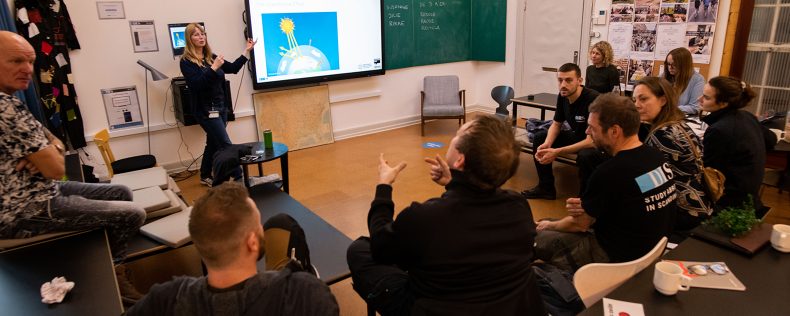All DIS staff participate in a Carbon Literacy Training that equips participants with a common language and understanding of the climate crisis. It provides tools and methods for having conversations surrounding climate change with others. The training inspires discussions between colleagues about concrete climate actions that they can implement in the work place. Training will be offered to students as more DIS staff and faculty become certified facilitators.
The Carbon Literacy Project
The Carbon Literacy Training is a blend of self-study elements and facilitated conversations in a full day of training. The principles of the Carbon Literacy Training come from the Carbon Literacy Project, founded in Manchester, U.K., which also certifies successful participants as Carbon Literate.
Read about the Carbon Literacy Project
Tailored Training
The Carbon Literacy Training materials used at DIS have been designed to align with the Carbon Literacy Standard, and to address sustainability matters particularly important to organizations working in higher education in general, and study abroad in particular. Several DIS faculty and staff members share their perspectives and insights as part of the training, making it uniquely tailored to the DIS organization.
As part of the DIS Carbon Literacy Training, Dr. Susanne Lilja Buchardt, DIS Lecturer in glaciology, explains the climate changes she has observed in her lifetime.
DIS staff, Philippa Carey and Ally Mackender, discuss how climate changes have already impacted their respective homes of The Bahamas and Colorado, U.S., and how these existing impacts affect people differently.
Taking Action
Across our locations in Stockholm and Copenhagen, a multitude of actions were identified as part of the Carbon Literacy Training. These include educating students on greener alternatives to independent travel and on ways to shop and cook more sustainably.
Recommended Resources
>> Calculate your environmental footprint using the WWF Footprint Calculator
>> Explore the equity and fairness dimension of climate change through the interactive tool The Carbon Map
